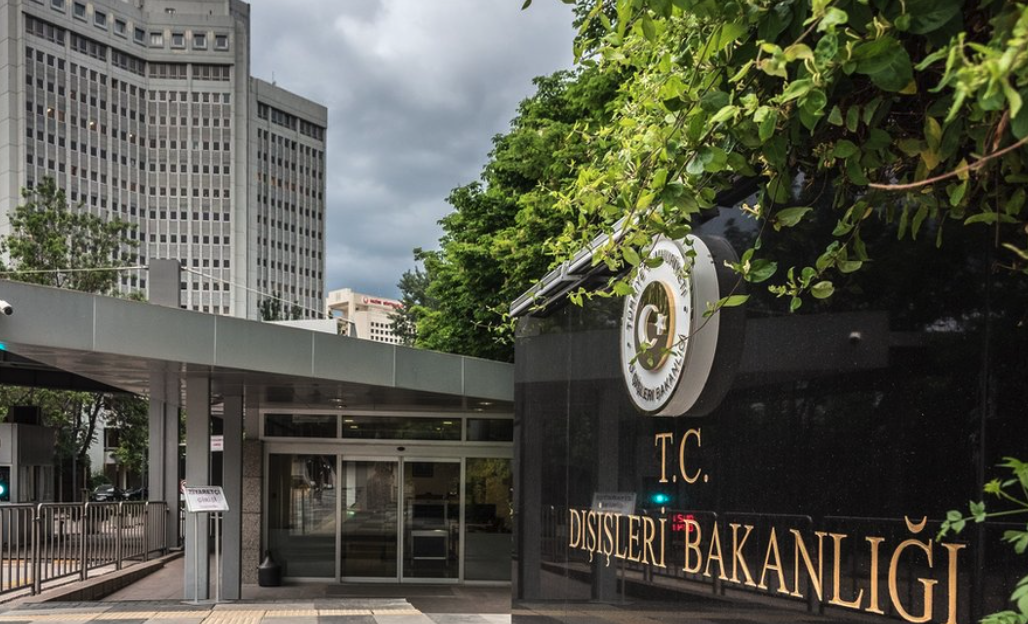Turkish voters will decide on Sunday who will lead Turkey as president for the next five years. If the widely expected comes to pass, that person will be Recep Tayyip Erdogan, who has governed the country since 2003. He narrowly missed the 50% threshold on the first round of voting that would have landed him the presidency on May 14. By Sinan Ciddi, Washington Examiner, May 24, 2023.
If he is elected, many Western leaders are wondering whether they will get more of the anti-Western and abrasive Erdogan they have come to know or whether he will adopt a more conciliatory stance. In short, if Erdogan wins, how is he likely to comport himself on the world stage?
AMERICA ISN’T READY FOR THE ERA OF AI NATIONAL SECURITY THREATS
So far, we have several clues. Last week, Erdogan gave a rare interview to CNN International, in which he emphasized his interest in working with the Biden administration, or “whoever” is in office. Ankara’s relationship with Washington is increasingly strained under the Biden administration, mainly as a result of congressional and administration objections to Erdogan’s policy pursuits. Turkey continues to hold on to an S-400 missile defense system, acquired from Russia, which resulted in Ankara’s dismissal from the F-35 program.
While Turkey has been helpful in the Ukrainian conflict, Washington’s desire, as in the case with the majority of the Western alliance, would be for Turkey to join the sanctions regime against Russian President Vladimir Putin. They would also like Erdogan to ratify Sweden’s NATO membership soon. But independent of any one policy portfolio, Turkey’s allies would simply like Erdogan to be less hostile in rhetoric and posture — as routinely witnessed in the country’s approach to Greece and Cyprus in the eastern Mediterranean.
Overall, expectations should be kept somewhere between cautious optimism to cautious pessimism. In his CNN interview, Erdogan maintained his defiant stance that Turkey would not give up the S-400s. He also highlighted his desire to maintain a “balanced” approach toward Russia, one that is likely to see Turkey’s efforts to facilitate Ukrainian grain shipments to regional markets, as well as crucial weapons sales to Kyiv. One should not expect Turkey to join the tough sanctions regime on Moscow, simply because doing so would heavily damage Turkey’s already fragile economy. This does not appear to present a positive future.
On the other hand, it is possible that Erdogan could backtrack on the S-400s. A few weeks ago, Erdogan’s spokesman, Ibrahim Kalin, visited Washington and hinted at such a possibility. Since then, Turkish officials have collaborated with U.S. Treasury officials to sanction several persons and companies inside of Turkey, known to have ties to the Islamic State group.
Following the May 28 runoff election, many economists fear that Turkey’s economy will need international assistance to stabilize it, possibly indicating that Erdogan may call upon U.S. support to approach the International Monetary Fund. Although Turkey has been kicked out of the F-35 program, it still desires to purchase new F-16 jets. For these reasons, we may also see a move to ratify Sweden’s accession to NATO, which the U.S. and other NATO allies have long desired.
Such a thaw could be interpreted as a “reset” with Washington and should be accepted and built upon. It would also be in keeping with Erdogan’s attempts to rebuild relationships with regional powers such as Syria, Israel, and Egypt, all examples where Erdogan is seeking to mend ties. For this to happen, however, Erdogan will have to deliver.
A possible, even likely, impediment to this rapprochement would be for Erdogan to follow up on his election campaign rhetoric, which routinely emphasizes Turkey’s newfound independence on the world stage. This narrative, which Erdogan drives on a daily basis, underlines Turkey’s strong homegrown defense industry, regional and global diplomatic reach, and the confidence that comes with working with partners such as Russia to achieve its national goals.
This is a posture that downplays Turkey’s « need » to work with the West and possibly a signal to Washington that if Turkey does not get what it wants from the U.S. soon — read: F-16s — then Erdogan will be « forced » to procure vital defense acquisitions from alternative sources. The Biden administration is aware of this perspective and wishes to avoid such an eventuality.

